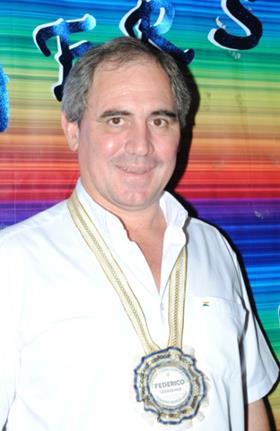
Federico Vasquez, the current president of Lapanday Foods Corporation, will leave the Philippine company at the end of this month after a decade of working with industry partners in the Asian and Middle Eastern markets.
Mr Vasquez, a Colombian national, is due to take over as general manager of Chiquita Brands’ Ecuadorian division on 1 October, marking a return to his native Latin America.
Mr Vasquez joined Lapanday from independent Colombian banana company Banacol in 1999, taking up the position of head of centralised purchasing for the Philippine group. In 2000, he was appointed head of trade and logistics for Lapanday, before becoming head of packaging, box, plant, plastic plant and materials management in 2003, and later president in 2007, a position he’s held until now.
“I’d like to thank our customers, suppliers and competition for all the support, the challenges and knowledge I’ve been able to attain `at Lapanday`,” said Mr Vasquez. “The familiarity with the culture and distinctive preferences in every marketplace has broadened my perspective on the produce industry.”
'From seed to shelf' has been a core philosophy for Lapanday, the largest integrated Philippine fresh produce company. Initially founded with a focus on simply growing export-quality Cavendish bananas and supplying them to multinational marketing companies, Lapanday has grown extensively into a sizeable company which also now exports and markets other products such as pineapples, papaya, mangoes and vegetables.
Mr Vasquez has played an important role in further executing the “seed to shelf” philosophy throughout the organisation. For instance, he helped to integrate and the group’s various operations into one consolidated entity and he also managed the design and construction of one of Mindanao’s state-of-the-art packaging facilities for boxes and plastics.
Understanding the Philippine’ diverse export markets – and servicing their complex demands – has also been a key focus for Mr Vasquez in enabling Lapanday to compete with the multinationals in the Philippines.
“The decision to become a player in the global fresh produce market was a strategic step undertaken by our major shareholders,” he told Asiafruit Magazine in an exclusive interview in 2007. "We need to understand diverse economies and study trends in the region. The markets are very independent, and you need to understand them. For us to compete well, we manage three important costs: fruits, packaging and shipping.”



